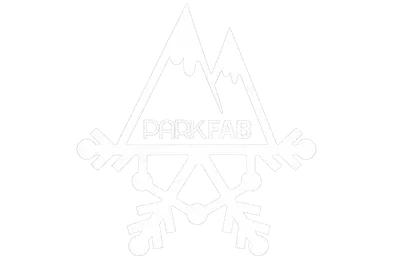When you’re building in Victor, Driggs, Tetonia, or Alta, “dirt” isn’t just dirt. The type of fill you use under your foundation, driveway, or landscaping will decide whether your project lasts for decades — or starts settling, cracking, and costing you big money.
Shawn at ParkFab has spent years digging, grading, and building all over the Valley, which means he knows exactly which material works where — and why the wrong choice can wreck a project before it’s even finished. Here’s your guide to the most common fill materials in the area and how they’re used.
1. Pit Run
-
What it is: Raw, unprocessed material straight from the gravel pit — usually a mix of rock, sand, silt, and clay.
-
Best for: Large fills, building up low areas, and creating a base layer where you need bulk without spending top dollar.
-
Why it works: It’s affordable, plentiful, and good for quickly raising grade.
-
When to avoid: Pit run doesn’t compact as tightly as processed materials, so you don’t want it directly under a slab or finished driveway. It can also hold water if there’s too much fine material in the mix.
2. Road Base
-
What it is: Crushed gravel and fines designed to compact rock solid.
-
Best for: Driveways, parking areas, and as a structural base under concrete or asphalt.
-
Why it works: Road base locks together under compaction, creating a stable surface that resists shifting under heavy loads and freeze-thaw cycles.
-
When to avoid: Road base isn’t a drainage material. Don’t use it where you need water to pass through freely.
3. Drain Rock
-
What it is: Washed rock (no fines) in sizes from ¾” to 2”.
-
Best for: Septic systems, French drains, curtain drains, and around foundation drains.
-
Why it works: The lack of fines allows water to move freely, preventing water from building up against foundations or saturating leach fields.
-
When to avoid: Not suitable for load-bearing surfaces — it moves under pressure without compaction.
4. Topsoil
-
What it is: Rich soil with organic matter for growing grass, plants, or gardens.
-
Best for: Final landscaping layers.
-
Why it works: Supports plant growth and retains moisture for landscaping.
-
When to avoid: Never use topsoil under a structure, driveway, or patio — organic matter breaks down over time, causing settling.
5. Sand
-
What it is: Fine-grain, loose material (less common in Teton Valley).
-
Best for: Bedding for pipes, leveling pavers, and in some drainage applications.
-
Why it works: Easy to shape and smooth, provides cushion for utilities.
-
When to avoid: Sand shifts easily and doesn’t compact well enough for structural loads.
6. Screened Gravel
-
What it is: Gravel processed to a uniform size, often ¾” minus.
-
Best for: Under slabs, around footings, and for compacted layers where consistency matters.
-
Why it works: Even sizing helps with compaction and drainage balance.
Why Material Choice Matters in Teton Valley
Teton Valley’s soil is rocky and variable — you can have good native gravel in one spot and clay-heavy muck just 10 feet away. Add in freeze-thaw cycles, spring runoff, and heavy snow loads, and suddenly the “cheapest dirt” might be the most expensive mistake you’ll make.
Shawn evaluates:
-
Drainage requirements (Will water need to move through or be blocked?)
-
Load requirements (Will it bear a house, a driveway, or just landscaping?)
-
Compaction needs (How well will it stay in place over time?)
-
Local availability (Some pits produce better materials than others)
Get It Right the First Time
The right fill material isn’t about what’s cheapest — it’s about what will perform. Using the wrong dirt in the wrong place can mean redoing work, paying twice for trucking, or dealing with frost heave and drainage failures.
Shawn at ParkFab knows the pits, the products, and the way local conditions affect them. Whether you’re building a home, grading a driveway, or fixing a drainage problem, he’ll match the right material to the job so you’re set up for long-term success.
📞 Call Shawn at ParkFab: 208-360-2411
📧 Email: shawn@parkfab.com
